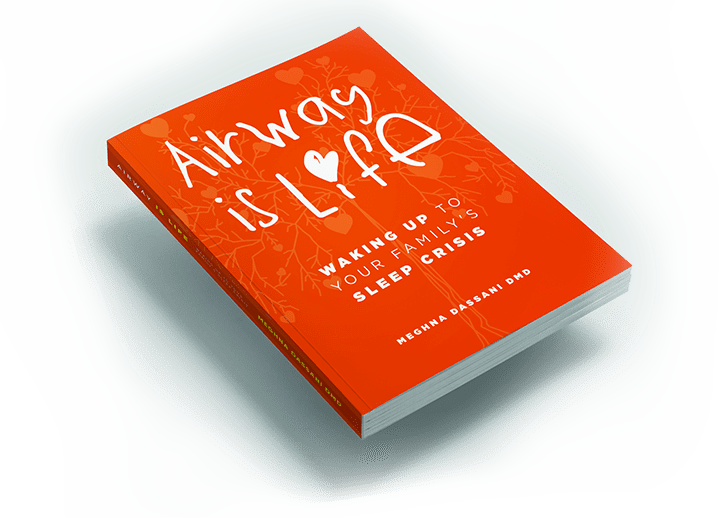CPAP therapy offers surprising relief for chronic cough and heartburn
Continuous positive airway pressure (CPAP) therapy has long been recognized as an effective treatment for obstructive sleep apnea (OSA), a condition characterized by pauses in breathing during sleep due to airway blockages.
However, emerging research suggests that CPAP therapy might offer benefits beyond improving sleep and preventing OSA-related complications. CPAP may also reduce chronic cough and heartburn, two common and bothersome conditions that can significantly impact a person’s quality of life.
Understanding chronic cough and heartburn
Chronic cough is defined as a cough that lasts for longer than eight weeks. It’s often a frustrating and challenging condition to manage. Various underlying factors can cause a chronic cough. These factors include respiratory infections, asthma, allergies, and gastroesophageal reflux disease (GERD).
Similarly, heartburn is characterized by a burning sensation in the chest. It’s a hallmark symptom of GERD, a condition in which stomach acid flows back into the esophagus, causing irritation and inflammation.
These two conditions may seem unrelated to sleep-disordered breathing. However, recent studies have shed light on their connection and the role that CPAP therapy may play in their management.
CPAP therapy’s role in managing chronic cough and heartburn
A recent study discovered that continuous positive airway pressure (CPAP) therapy, primarily used for treating sleep apnea, may also provide relief for chronic cough and heartburn.
Sleep apnea occurs when a person’s throat muscles relax excessively during sleep, leading to airway constriction or closure, and resulting in fragmented sleep patterns. Sleep apnea can have serious health implications, including cardiovascular issues, type 2 diabetes, and mood disorders.
CPAP therapy is considered the most effective sleep apnea treatment. It works by keeping people’s airways open as they sleep, mimicking normal breathing patterns.
But what’s the connection between sleep apnea, acid reflux, and chronic cough?
According to Dr. David Hill, an assistant clinical professor of medicine from the Yale University School of Medicine, when sleep apnea causes airflow obstruction, breathing efforts intensify. Consequently, increased breathing efforts can aggravate reflux by prompting acid to rise into the esophagus. Treating sleep apnea with CPAP can regulate a person’s breathing and, in turn, reduce their reflux symptoms by keeping the valve between their stomach and food pipeline closed.
The study published in ERJ Open Research observed 822 patients with moderate to severe sleep apnea in Iceland. It found that regular CPAP usage significantly reduced the following:
- Nighttime heartburn
- Morning cough with mucus
- Chronic bronchitis risk
- Wheezing
Dr. Luis Quintero, a pulmonary, critical care, and sleep physician at Northwell Health, says people experiencing acid reflux or persistent coughing should discuss polysomnography, also known as a sleep study, with their healthcare providers for sleep apnea evaluation.
Lifestyle modifications to reduce chronic cough and heartburn
In addition to CPAP therapy, lifestyle modifications are important components of managing chronic cough and heartburn.
Here’s a list of lifestyle modifications that can provide heartburn relief:
- Avoiding trigger foods and beverages, such as…
- citrus fruits
- tomato-based products
- chocolate
- coffee
- alcohol
- garlic
- onion
- high-fat foods
- peppermint
- spicy foods
- Maintaining a healthy weight
- Elevating the head of the bed during sleep
- Not eating close to bedtime
These lifestyle modifications can address the underlying causes of chronic cough:
- Quitting smoking
- Treating any respiratory conditions, such as…
- asthma
- chronic obstructive pulmonary disease (COPD)
- hay fever
- bronchitis
- pneumonia
- pulmonary fibrosis
- Avoiding environmental irritants, like…
- tobacco smoke
- air pollution
- smoke from cooking or wood-burning stoves
- indoor heating and air conditioning
- allergens, such as pet dander, pollen, and dust mites
CPAP therapy is typically considered the gold standard for treating sleep apnea. However, not everyone tolerates CPAP therapy well. So incorporating lifestyle changes provides alternative avenues for managing sleep apnea, chronic cough, and heartburn.
Further research is needed to fully understand how CPAP therapy can benefit people with sleep apnea, chronic cough, and heartburn. However, by addressing the underlying causes of these conditions, CPAP therapy may be able to improve people’s quality of life by reducing their symptoms and helping them get a better night’s rest.
Dr. Meghna Dassani has practiced dentistry for over two decades and is passionate about the role dentists play in whole-body health. You can learn more at her website: MeghnaDassani.com.
Healthy Sleep Revolution Podcast
Snoring? Tired all day? Trouble focusing?
So many think these symptoms are common in kids and adults when tired. Join us as we debunk some of these common myths and put the spotlight on Sleep Apnea. Discover what constitutes healthy sleep and how we can help ourselves and our kids get the best sleep ever.


